8 Worst American States To Be In When SHTF
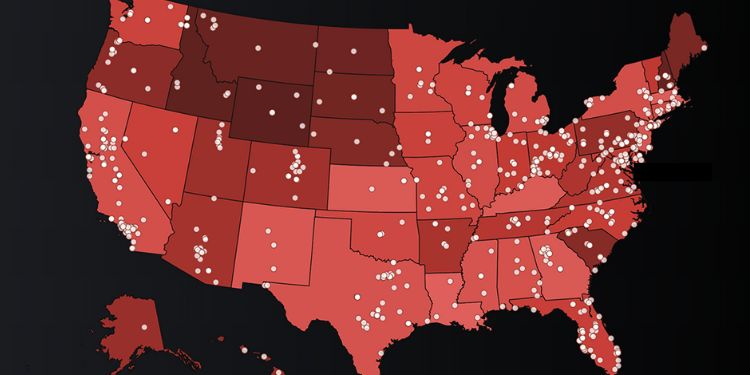 Source: https://www.askaprepper.com/
Source: https://www.askaprepper.com/
In a country as vast and diverse as the United States, it’s important to be aware of the potential dangers that can lurk in certain areas.
While disaster can strike anywhere, there are certain states that have a higher risk factor than others. From natural disasters like hurricanes and tornadoes to man-made catastrophes, these states should be approached with caution.
In this article, we will explore the reasons why you should think twice before venturing into these danger zones.
By understanding the unique risks associated with each state, you can make informed decisions and take the necessary precautions to keep yourself and your loved ones safe.
So, buckle up and prepare for a harrowing journey through the top five states that should be avoided at all costs when disaster strikes.
California
California is often hailed as a vibrant and diversified state, attracting people from all walks of life. Governed by liberal ideals for decades, California is definitely not a welcoming place to live for preppers who value, cherish, and wish to exercise their Second Amendment rights.
This state has a history of facing a variety of natural disasters that pose significant risks to its residents.
Related: 11 Things You Need to Have Ready for when the Power Grid Fails
From hurricanes and tropical storms to wildfires and earthquakes, the state is no stranger to nature’s wrath. These events often result in widespread power outages, flooding, property damage, and even loss of life. It is crucial for residents and visitors alike to stay informed about potential threats and have a plan in place to ensure their safety.
California’s vast population coupled with aging infrastructure has the potential to exacerbate the problems faced during emergencies.
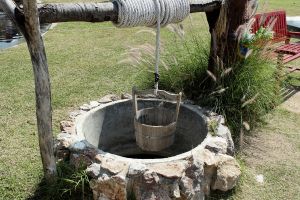
The state’s power grid, road networks, and water storage systems are subject to strain under extreme conditions, leaving preppers reliant on infrastructure that may fail. Preppers may face challenges in obtaining permits for building alternative structures, digging water wells, or installing reliable renewable energy systems.
Additionally, strict zoning laws can prevent individuals from using their land to its fullest potential for cultivation or raising livestock, hindering self-sustainability.
Hawaii
Hawaii has strict gun laws, requiring individuals to obtain a permit to purchase, possess, or carry firearms. Off-grid living is also regulated due to zoning laws, building codes, and limited land availability.
The state is highly susceptible to hurricanes, volcanic eruptions, tsunamis, and other natural disasters, which can pose significant challenges for survivalists.
When thinking about the ideal location for preppers or homesteaders to live, Hawaii might not be the first place that comes to mind. While the tropical paradise offers breathtaking scenery and year-round pleasant weather, it presents unique geographical, environmental, and socio-economic challenges for self-reliant individuals.
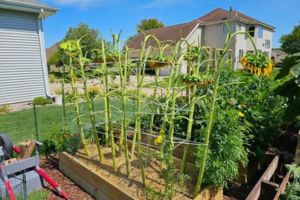 One of the biggest challenges for preppers and survival homesteaders in Hawaii is the limited availability of land. With a land area of approximately 10,931 square miles and a growing population, finding ample space to establish a self-sufficient homestead, garden, or livestock operation can be incredibly challenging.
One of the biggest challenges for preppers and survival homesteaders in Hawaii is the limited availability of land. With a land area of approximately 10,931 square miles and a growing population, finding ample space to establish a self-sufficient homestead, garden, or livestock operation can be incredibly challenging.
This limited land availability often leads to high land prices, making it difficult for individuals with limited financial resources to secure their own piece of land.
Hawaii’s geographical location exposes it to various natural disasters. From hurricanes and tsunamis to volcanic eruptions and earthquakes, the state faces ongoing threats that can disrupt the self-sufficiency of preppers and homesteaders.
While there are emergency preparedness measures in place, the rapid onset and unpredictable nature of these disasters can severely impact supply chains, infrastructure, and overall self-reliance efforts.
While Hawaii offers a lush environment for growing tropical fruits and vegetables, it heavily relies on imported resources to meet its population’s needs.
A majority of food, water, and energy are imported from the mainland United States or other countries. This reliance on external resources poses a significant challenge for those pursuing self-sufficiency, as disruptions in transportation or supply chains could leave individuals without essential supplies.
Furthermore, essential supplies like seeds, building materials, and hardware may not be readily available or cost-effective due to the distance and limited market size. The extra cost of shipping and transportation can significantly impact the feasibility of establishing and sustaining a self-sufficient lifestyle on the islands.
Louisiana
Louisiana, situated in the Gulf Coast region of the United States, is known for its unique culture, vibrant cities, and natural beauty.
However, when it comes to prepping or survivalism, the state poses several challenges due to its geographical and climatic characteristics, vulnerability to natural disasters, potential lack of essential resources, and certain legal limitations.
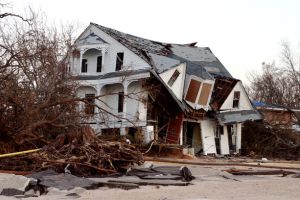 Louisiana, commonly referred to as the “Hurricane State,” faces multiple natural disasters. The state’s unique geography, with its extensive coastline, exposes it to a high risk of storm surge, inland flooding, and erosion.
Louisiana, commonly referred to as the “Hurricane State,” faces multiple natural disasters. The state’s unique geography, with its extensive coastline, exposes it to a high risk of storm surge, inland flooding, and erosion.
Related: 14 Things to Stockpile for the Next Hurricane
The humid subtropical climate of Louisiana also brings its share of challenges, including high humidity, frequent heavy rainfall, and the potential for tornadoes.
The state’s vast wetlands and dependence on agriculture make food production vulnerable to natural disasters, potentially leading to shortages and food insecurity during extended emergencies.
Another aspect to consider is the legal and regulatory limitations that may hinder preparedness efforts in Louisiana. While the state encourages individual preparedness, there are restrictions on certain activities such as water collection and firearm ownership.
For example, Louisiana has limited regulations on water rights, which can limit a prepper’s ability to stockpile water supplies legally.
Additionally, firearms laws may be subject to interpretation, potentially impacting a survivalist’s self-defense plans or options for hunting food during an emergency.
Rhode Island
Rhode Island, the smallest state in the United States, offers a unique experience for preppers or homesteaders. While the state presents several advantages for those practicing self-sufficiency, it also poses significant challenges.
 Rhode Island has some of the strictest gun laws in the country, including an “assault weapons” ban, limitations on magazine capacity, and a stringent requirement for a license to carry firearms.
Rhode Island has some of the strictest gun laws in the country, including an “assault weapons” ban, limitations on magazine capacity, and a stringent requirement for a license to carry firearms.
Off-grid living may also be challenging due to zoning laws and building codes.
Rhode Island is vulnerable to hurricanes, severe storms, and flooding, which can present difficulties for survivalists.
The state’’s geography presents a particular constraint for individuals seeking self-sufficiency. With an area of just 1,034 square miles, the state lacks extensive spaces for large-scale cultivation.
According to the United States Department of Agriculture (USDA), only around 168,000 acres of land in Rhode Island are potentially suitable for farming, which accounts for just approximately 9% of the overall land area.
Restrictions on land use and building codes may limit the ability to establish certain self-sufficient practices, such as keeping livestock or constructing alternative dwellings.
New York
New York, a bustling metropolis often associated with opportunity and progress, presents unique challenges for individuals interested in prepping or homesteading within its urban confines.
With limited space, zoning restrictions, high living costs, and strict building codes, all but possibly the northern rural areas of the state and not friendly to preppers or survival homesteaders.
 New York has restrictive gun laws, including an “assault weapons” ban, limitations on magazine capacity, and a requirement for a license to carry firearms.
New York has restrictive gun laws, including an “assault weapons” ban, limitations on magazine capacity, and a requirement for a license to carry firearms.
Off-grid living is also heavily regulated, with zoning laws that may hinder individuals from living self-sufficiently.
New York is susceptible to hurricanes, flooding, snowstorms, and severe weather events, which can impact a survivalist’s ability to sustain themselves.
Strict regulations dictate land use, prohibiting certain agricultural activities within urban areas. Zoning restrictions often prioritize commercial developments, leaving little room for rural or urban farming or alternative electricity generation systems.
New York’s rigorous building codes can hinder the construction of structures necessary for homesteading or prepping activities.
The emphasis on safety measures and adherence to standards may pose challenges for those seeking to build storage areas for supplies, rainwater harvesting systems, or other crucial infrastructure required for self-sufficiency.
Connecticut
Connecticut offers a picturesque landscape, a rich history, and proximity to bustling cities. However, for those interested in prepping and homesteading, the state poses unique challenges and disadvantages.
 This state also has strict gun laws, including an “assault weapons” ban, restrictions on magazine capacity, and a requirement for a permit to carry a handgun.
This state also has strict gun laws, including an “assault weapons” ban, restrictions on magazine capacity, and a requirement for a permit to carry a handgun.
The state also has regulations on off-grid living, with building codes and zoning laws that may limit self-sufficiency.
Related: How Much Land Do You Need to Be Self-Sufficient?
Connecticut is vulnerable to hurricanes, severe storms, and blizzards, which can disrupt essential services and hinder survivalist efforts.
Connecticut is the third smallest state in the United States, with a high population density and limited land availability. Finding suitable land for homesteading can be challenging, especially in areas close to urban centers.
Moreover, the cost of land is typically higher compared to states with greater expanses of rural land, making it economically challenging for some preppers and homesteaders.
It has stringent building codes and regulations that may pose challenges for preppers and homesteaders. These codes often focus on safety and environmental concerns, restricting the use of alternative energy systems, water collection, and structures.
Massachusetts
Massachusetts has strict gun laws, restrictions on magazine capacity, and a requirement for a license to carry a handgun. The state also has strict building codes and zoning laws that can pose challenges for off-grid living.
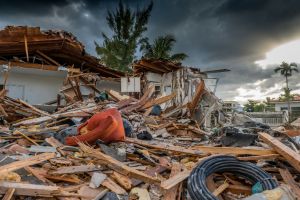 Massachusetts is susceptible to hurricanes, blizzards, and severe weather events, which can affect survivalists’ ability to sustain themselves. The “Blizzard of ’78” in Massachusetts caused significant damage and widespread power outages, demonstrating the impact of severe weather on the region.
Massachusetts is susceptible to hurricanes, blizzards, and severe weather events, which can affect survivalists’ ability to sustain themselves. The “Blizzard of ’78” in Massachusetts caused significant damage and widespread power outages, demonstrating the impact of severe weather on the region.
Massachusetts presents unique geographical challenges for preppers and homesteaders. The state’s densely populated urban areas offer limited space for self-sufficient living. The high cost of land and scarcity of available acreage make it difficult for individuals to establish self-sustaining homesteads.
This state is known for its strict regulations, which pose obstacles for preppers and homesteaders alike. Regulations related to zoning, building codes, and livestock restrictions often clash with the principles of self-sufficiency and preparedness.
New Jersey
New Jersey has strict gun laws, requiring individuals to obtain a permit to purchase, possess, or carry firearms.
The state also has restrictive off-grid living regulations, including building codes and zoning laws that can make it difficult for individuals to live off the grid. New Jersey is vulnerable to hurricanes, flooding, and winter storms, which can cause power outages and other challenges for survivalists.
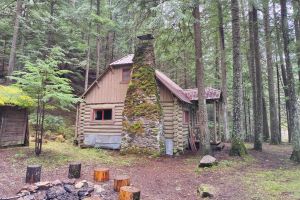 Living off the grid, or pursuing a self-sufficient lifestyle, has become a popular choice for many individuals seeking resilience and independence in the face of uncertain times.
Living off the grid, or pursuing a self-sufficient lifestyle, has become a popular choice for many individuals seeking resilience and independence in the face of uncertain times.
However, not all locations are conducive to prepping or homesteading. New Jersey poses several disadvantages for those interested in these lifestyles.
One of the primary challenges of living in New Jersey is its densely populated urban areas. With a population of over 9 million people, finding affordable, suitable land for homesteading or prepping purposes can be extremely challenging.
Related: 8 Homesteading Items You Should Get From The Dollar Store
The state’s geographical limitations are another obstacle. Despite New Jersey’s relatively small size, it boasts a diverse topography that presents challenges for self-sufficiency.
The state primarily consists of coastal plains, heavily populated urban areas, and the hilly terrain of the Highlands region. These geographical features limit the availability of arable land, suitable for farming or establishing a homestead.
Furthermore, New Jersey’s regulatory environment poses additional obstacles. The state has stringent building codes, zoning restrictions, and a range of permits required for various activities related to prepping or homesteading.
These regulatory factors can make it difficult for individuals to establish off-grid housing, farm animals, install alternative energy systems, or construct necessary structures for self-sufficiency.
Natural disasters can wreak havoc on communities, causing loss of life, property damage, and long-term economic and emotional distress. It’s crucial to understand the impact these events can have before delving into the specific states that are prone to them.
Whether it’s a hurricane tearing through coastal areas, a tornado ripping through the heartland, or an earthquake shaking the foundations of a region, natural disasters can leave a lasting mark on the affected regions.
The devastation caused by these events often takes years, if not decades, to fully recover from, making prevention and preparedness essential.
Anyone can join.
Anyone can contribute.
Anyone can become informed about their world.
"United We Stand" Click Here To Create Your Personal Citizen Journalist Account Today, Be Sure To Invite Your Friends.
Please Help Support BeforeitsNews by trying our Natural Health Products below!
Order by Phone at 888-809-8385 or online at https://mitocopper.com M - F 9am to 5pm EST
Order by Phone at 866-388-7003 or online at https://www.herbanomic.com M - F 9am to 5pm EST
Order by Phone at 866-388-7003 or online at https://www.herbanomics.com M - F 9am to 5pm EST
Humic & Fulvic Trace Minerals Complex - Nature's most important supplement! Vivid Dreams again!
HNEX HydroNano EXtracellular Water - Improve immune system health and reduce inflammation.
Ultimate Clinical Potency Curcumin - Natural pain relief, reduce inflammation and so much more.
MitoCopper - Bioavailable Copper destroys pathogens and gives you more energy. (See Blood Video)
Oxy Powder - Natural Colon Cleanser! Cleans out toxic buildup with oxygen!
Nascent Iodine - Promotes detoxification, mental focus and thyroid health.
Smart Meter Cover - Reduces Smart Meter radiation by 96%! (See Video).





